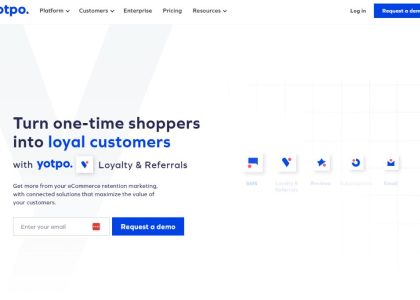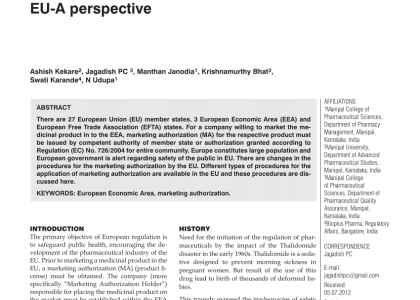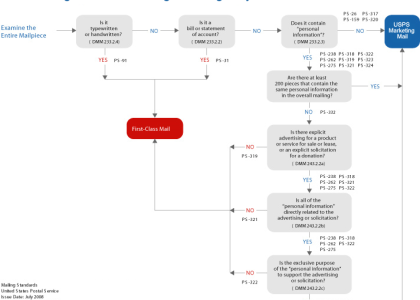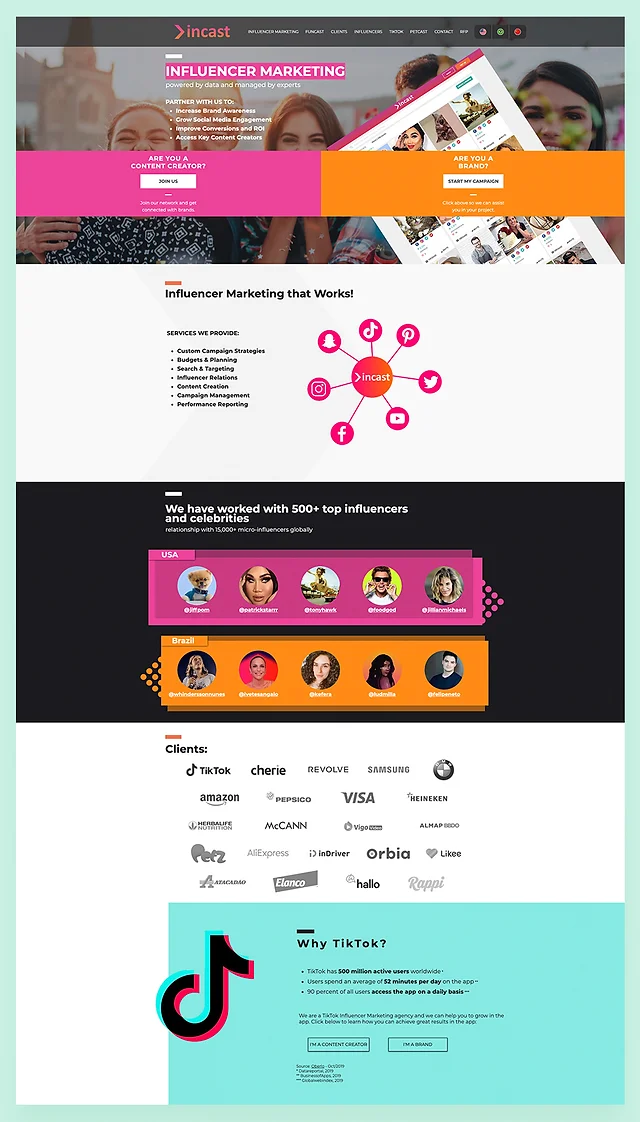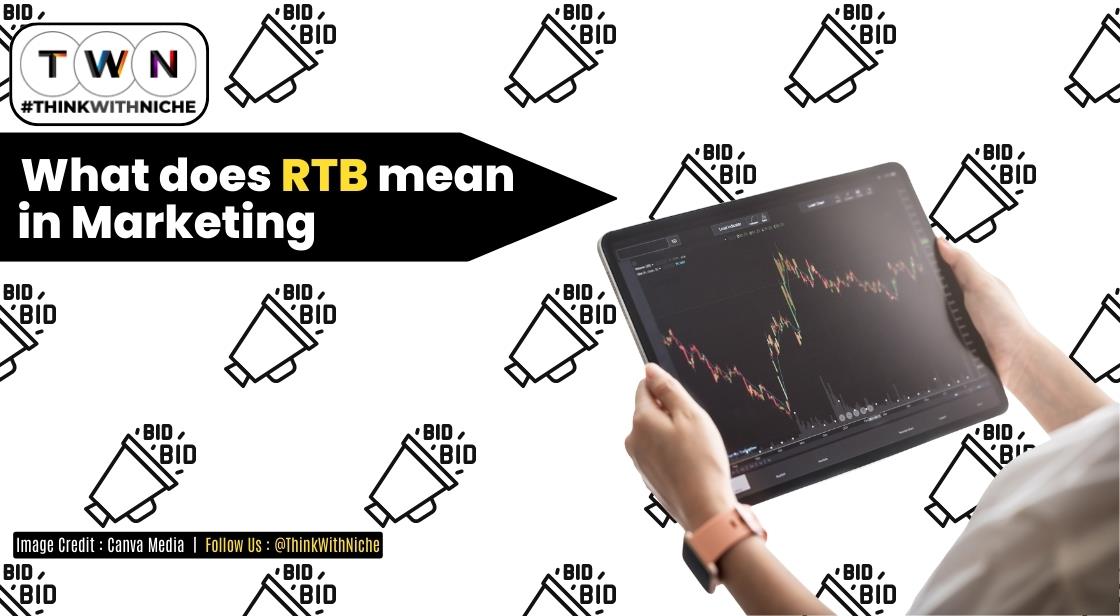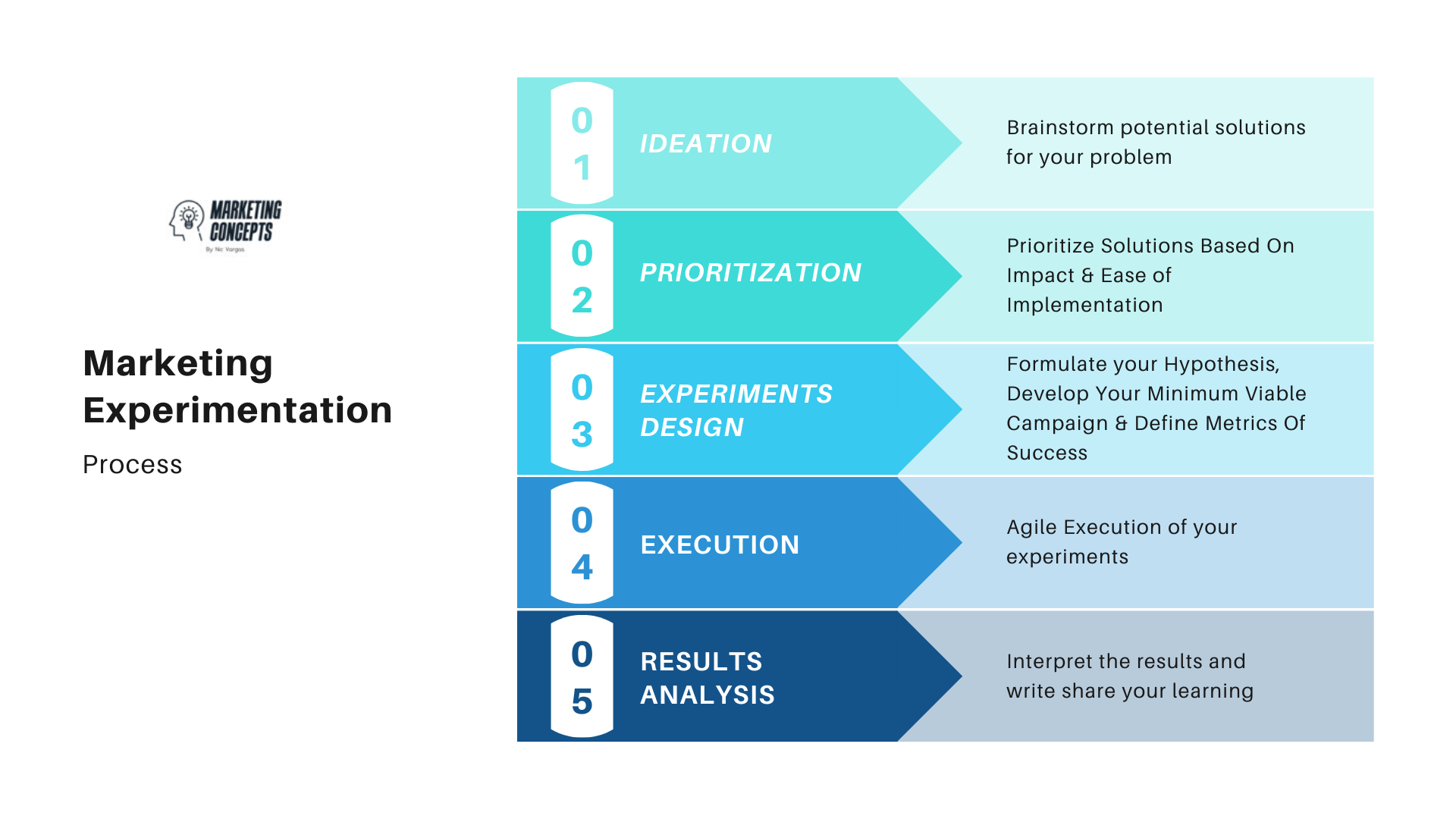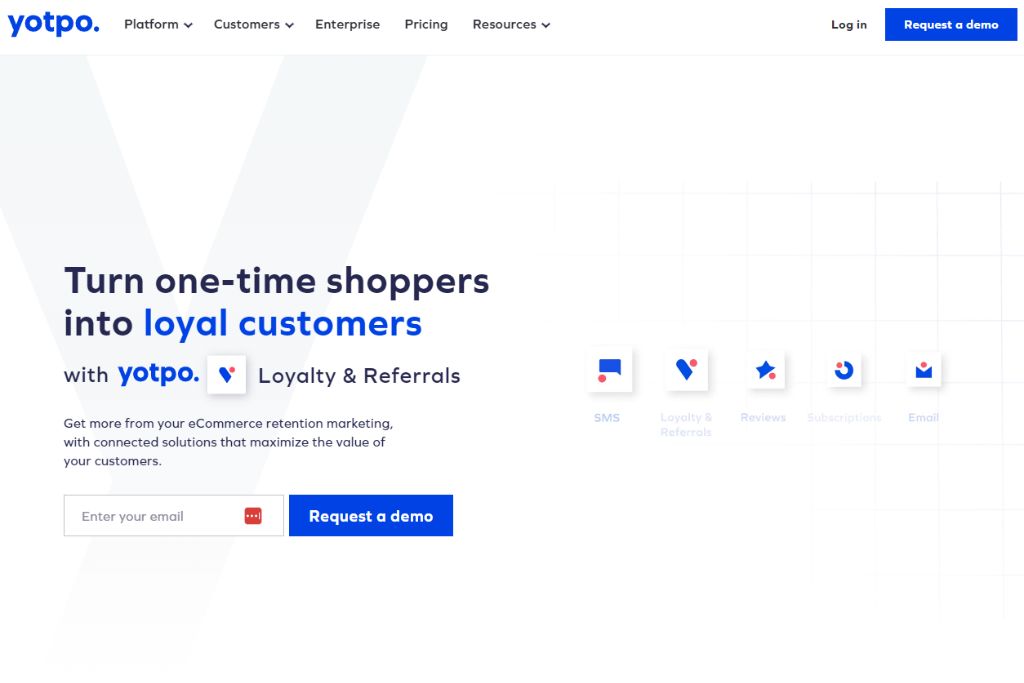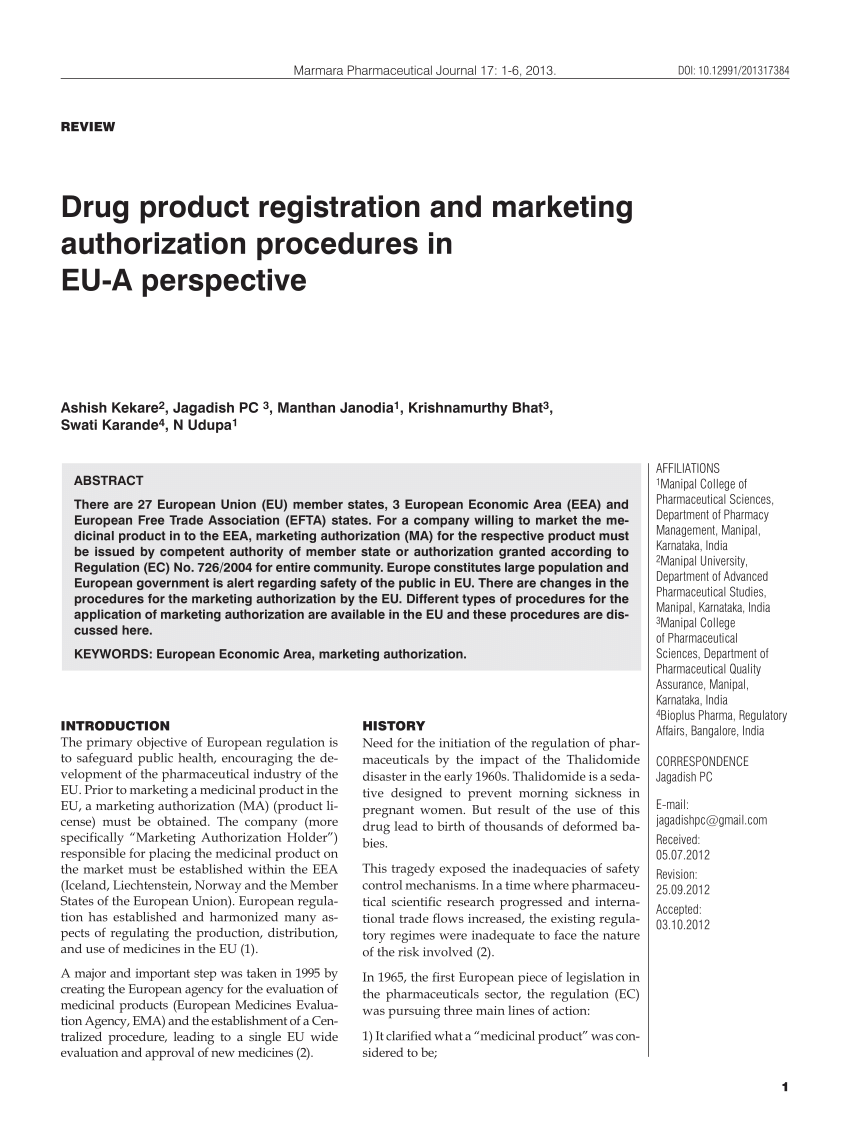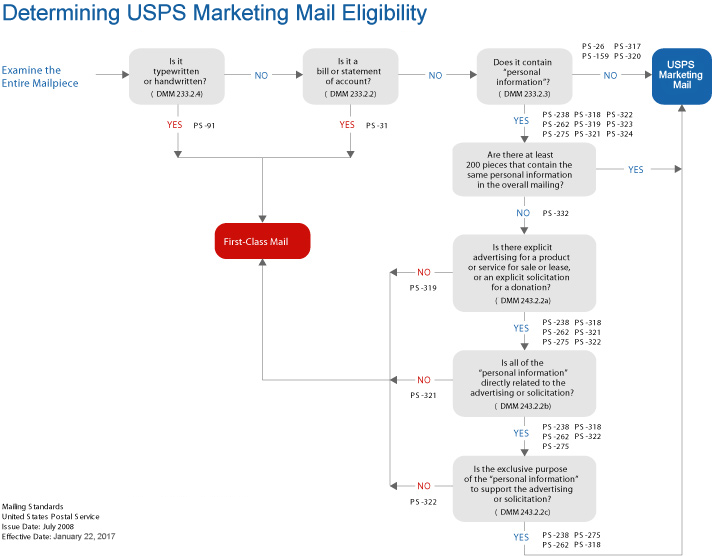In the ever-evolving world of business, being cognizant of various marketing principles and strategies is crucial. One such potent strategy being employed by businesses worldwide is field marketing. However, understanding what field marketing encompasses, how to implement it strategically, and its significance can be quite challenging without the right guide. This article aims to shed light on these aspects, ensuring a comprehensive understanding of this significant marketing strategy.
Field marketing, in its most basic form, refers to the direct promotion of products or services to potential customers in a physical setting. Despite the prominence of digital marketing, field marketing strategies retain their relevance. They provide an opportunity for companies to engage in direct interactions with their customers, thus forming stronger connections and yielding valuable insights into customer behavior and preferences.
The strategic implementation of field marketing varies among businesses. It requires a thorough understanding of the market, coupled with invincible planning and execution. This article provides a step-by-step guide on how to craft an effective field marketing strategy, ensuring you stay ahead in the highly competitive market environment.
Evidently, field marketing holds substantial importance in today’s business world. Yet, its impact is often underestimated by many. It not only facilitates direct engagement with potential customers but also boosts brand visibility and recall. This article delves into the myriad benefits of field marketing, strengthening its importance in the contemporary marketing landscape.
An In-Depth Look at Field Marketing: benefits of field marketing
Field marketing is a direct strategy involving traditional promotional methods usually executed in public venues. This type of marketing involves interaction with the targeted audience, often promoting services or products to specific demographics. Field marketing aims to create and enhance direct connections between consumers and businesses.
Field marketing strategy plays a pivotal role in bridging the gap between a firm and its potential consumers in the real world. An effective field marketing plan can significantly improve the company’s market presence and boost product awareness, as this strategy locates potential customers and markets the business directly to them. Rather than waiting for prospects to reach the business, this proactive approach lets the company take its offerings to the audience.
- Product Demonstrations: This form of field marketing strategy aims to introduce products to potential customers through live demonstrations. Companies showcase how their products or services function and encourage consumers to try them out.
- Sampling: Providing customers with free samples is a quintessential part of this strategy. It allows customers to try the product before deciding on a purchase.
- Exhibitions and Trade Shows: Participating actively in exhibitions and trade shows enables companies to showcase their offerings, interact with potential customers, and create brand awareness.
The importance of field marketing cannot be overstated in today’s business landscape. Conducting promotional activities in the field not only enhances brand visibility but also helps a business understand its target consumers’ mindset. This knowledge can aid in tailoring marketing messages and campaigns to suit customers’ interests and needs, thereby increasing market penetration.
Field Marketing: A Prominent Facet of Business
Field marketing, a pivotal aspect in the broad spectrum of marketing, plays a highly significant role in enhancing business growth. By directly interacting with potential customers, field marketing helps businesses understand the consumer market more efficiently. It enables businesses to exhibit their products or services in the real world, providing a platform to get immediate feedback and lasting impressions.
Effectively planned and executed field marketing strategies can lead to increased brand awareness and recognition. It provides an excellent opportunity for a business to directly affect its product’s visibility and credibility. This form of marketing requires a hands-on approach, often resulting in personal and interactive experiences that create stronger bonds between a brand and its customers.
The Impact of Field Marketing on Business
Field marketing can exponentially increase sales performance. Interacting directly with consumers opens many possibilities for businesses. It not only helps companies demonstrate their products or services features but also allows them to communicate their vision and mission. This direct interaction can have a profound impact on potential customers and aids in igniting an interest in the product or service being marketed.
- Provides valuable market insight: Field marketing helps businesses get real-time feedback and trends from the market. This enables companies to make necessary adjustments to their marketing strategies, ensuring a better future outcome.
- Differentiating factor: As part of field marketing, personalized marketing tactics can be implemented. This can act as a differentiating factor in the competitive market, setting the brand apart from its competitors.
- Establishes loyalty: High levels of personal interaction can lead to trust and loyalty among consumers, which can further translate into customer retention and increased sales.
Thus, field marketing holds the potential to not only accelerate sales but also seep deeper into the chosen market. Businesses aiming to form a strong base of loyal customers, increase brand visibility, and generate high sales revenue should unequivocally consider leveraging field marketing as part of their overall marketing strategy.
Crucial Components to Success in Field Marketing
For any organization interested in yielding productive results from field marketing, there is a requirement for a well-crafted strategy. Various facets contribute to generating a successful approach to field marketing. These pillars ensure you are captivating and converting your target audience effectively.
Precise Target Audience Identification
Identifying the target audience is paramount in the scheme of a successful field marketing strategy. After all, it’s the audience that an organization aims to impress and convert into paying customers. Engaging in demographic research and market segmentation enables the business to determine the group that is most likely to be interested in its products or services.
Appropriate Choice of Marketing Channels
The choice of marketing channels can make or break a field marketing strategy. The approach should utilize channels that are frequented by the target audience. These channels could be physical locations like trade shows or sports events, or virtual spaces like social media platforms or community forums.
Designing High Impact Marketing Material
Creativity and relevance in the design of marketing materials is another critical element. Whether it’s a flyer, product sample or a promotional video, it’s crucial to deliver a clear and compelling message that aligns with your brand identity.
Performance Tracking and Feedback Management
An underrated but equally important aspect includes monitoring performance and managing feedback. By tracking how effectively the strategy is raking in benefits, decisions regarding continuation or required amendments can be made. Collecting customer feedback, both positive and negative, delivers direction for improvement.
Successfully incorporating these elements into a field marketing strategy significantly enhances the prospect of reaching and influencing the desired audience, eventually achieving business goals.
Crafting an Impactful Field Marketing Expedition
Initiating a field marketing expedition that yields significant results requires precise planning and strategic execution. At the core of such planning lies an in-depth comprehension of the target audience and their preferences, trends in the marketplace, competitor analysis, and the unique selling proposition (USP) of the brand or the product.
Define your objectives
To start with, clearly defining the objectives of the campaign is critical. Whether you aim for augmenting brand visibility, enhancing sales, or fostering client relationships, you should always have a clear and specific goal. Furthermore, these objectives should be measurable, actionable, relevant, and time-bound.
Understand your audience
Understanding your audience is a crucial component of planning an effective field marketing expedition. Creating customer personas can help you in identifying the preferences, needs, and purchasing habits of your target audience. This data can further assist in formulating personalized strategies that resonate with your audience, thereby maximizing engagement and conversions.
Carefully select the venue and strategies
The selection of appropriate venues and interaction strategies can significantly influence the effectiveness of your campaign. The venue should be selected keeping in mind the convenience and preferences of your audience. Similarly, the interaction strategies should be engaging, stimulating, and should align well with the product or the brand.
Evaluate the outcome
Finally, the success of a field marketing campaign is not just about planning and execution, but also about evaluation. Measuring the outcome of your campaign can not only provide insights into its effectiveness but can also assist in planning future strategies. You can consider factors like increased sales, better brand recognition, positive customer feedback, etc., to evaluate the success of your campaign.
In conclusion, a field marketing expedition can be a powerful tool to enhance brand visibility and sales, provided it is planned and executed effectively.
Identifying the Audience and Tailoring Approach in Field Selling
The practice of targeting and segmentation is integral part of field marketing. In essence, it is all about getting the right product or service in front of the right people. Companies today invest heavily in determining who their customers are, where they’re located, how they make purchasing decisions and what motivates them to take action.
Segmentation involves dividing the broader market into sub-groups (or segments) based on certain shared characteristics. In relation to field selling, these shared characteristics can range from demographic details such as age, gender or income to psychographic aspects like lifestyle, personality, or buying preferences.
With the understanding gained from segmentation, businesses can then go on to target these groups more effectively. This is where the concept of targeting comes into play. Targeting involves focusing marketing efforts on specific segments identified during the segmentation process. It helps in crafting personalized marketing messages to address the unique needs, desires and concerns of each segment.
Applying Targeting and Segmentation in Field Marketing
Successful field marketing operations are usually those that consider targeting and segmentation as central elements in crafting strategy. It can lead to meaningful interactions with consumers, creating brand perceptions and eliciting desired responses.
- Product Demos: Field marketing strategies often involve product demonstrations. The success of these events heavily relies on attracting the kind of audience that would be interested in the product. Here’s where segmentation and targeting prove their value. By identifying the most probable segment of consumers who would find the product appealing, product demos can be arranged at strategic locations and times to engage that audience.
- Sampling Campaigns: Similar to product demos, sampling campaigns too rely on accurately identified target groups. Without proper audience segmentation and targeting, marketers may not see desired engagement and could encounter wastage due to samples reaching the wrong audience.
In conclusion, no matter the nature of the field marketing activity, targeting and segmentation remain fundamental to achieving a beneficial outcome. This dual strategy not only makes marketing initiatives much more efficient but also increases the chances of the product or service capturing the targeted audience’s attention.
Exploring Tools and Techniques in Outreach Marketing
Outreach marketing, often known as field marketing, is a strategic approach which takes the product or service directly to the customer, often in their natural setting. To effectively execute these marketing strategies, a wide variety of tools and techniques are available.
Innovative Instruments in Outreach Marketing
Demonstrations and Sampling: A traditional yet highly effective tool in the field marketing toolbox. It involves taking a product or a service directly to the consumer to allow them a firsthand experience before making a purchase decision. This could be particularly seen in retail stores, shopping malls, public places, etc.
Event Marketing: This tool allows businesses to introduce their products or services during events, trade shows or community gatherings. It often involves presentations, exhibitions, sponsorship and event participation. Being at an event, where the customer is relaxed and open, allows the business to make a substantial impact.
Mobile Marketing Vehicles: Mobile marketing involves the use of specially designed vans or trucks, known as mobile marketing vehicles (MMVs), to conduct marketing activities. MMVs are an excellent means of reaching a diverse and wider audience, creating a brand presence in multiple locations without permanent establishment investments.
Effective Techniques in Outreach Marketing
- Building Personal Relationships: This technique centres on the principle of building trust through personal interaction. When you interact with consumers personally, you’re not just selling a product but building a relationship.
- Tailored Promotions: This technique involves designing promotional activities based on the nature of the field marketing event. Depending on the target audience, marketers could offer coupons, discounts or free samples to draw most attention.
- Influencer Engagements: This relatively newer field marketing technique involves partnering with influencers who can showcase your product or service to their followers, thereby boosting its reach and influence.
While digital marketing is on the rise, the importance and effectiveness of field marketing tactics and methods should never be underestimated. The key is to use these tools and techniques wisely and appropriately to maximize your brand’s reach and connect with potential customers.
Comprehending the Client’s Path in Mobile Marketing Techniques
Being able to delineate the pathway a customer follows when interacting with a brand, service, or product – their journey – is a crucial aspect of developing an effective mobile marketing strategy. This customer journey starts from when the consumer first hears about the product or service, to the purchasing stage, and the after-sales process. Every interaction the consumer has with the brand forms part of this pathway, and comprehending this journey assists brands in providing effective and relevant marketing efforts.
Understanding the customer journey allows companies to tailor their on-the-ground promotional activities to specific customer needs at each stage. An effective customer journey map exposes detailed insights into consumer behaviour, preferences, desires, and frustrations. It can reveal gaps between what the customer expects at a particular stage and what the brand is providing.
Identifying Touchpoints:
- Initial awareness: This is the stage when a prospective customer becomes aware of a brand or offering. Here, field marketing campaign efforts should focus on attracting the customer’s attention and sparking interest.
- Evaluation: At this stage, the customer is considering multiple options. Targeted marketing efforts should focus on showcasing why the brand is the best choice.
- Purchase: This is the point of sale, where marketing efforts should reassure the customer of their choice, making the purchase process as seamless and pleasant as possible.
- Post-Purchase: After the sale, follow-up marketing and customer service efforts should focus on keeping the customer satisfied, encouraging repeat business and referrals.
Creating a map of the customer journey in mobile marketing methodologies allows us to identify key interaction moments where value can be added, ensuring each marketing effort serves a specific purpose related to the customer’s stage in their journey. It can reduce wasteful spending on non-targeted or misaligned marketing efforts and improve customer satisfaction and brand image as a whole.As illustrated, grasping customer’s pathway in field marketing methodologies is key to an efficient and effective marketing strategy.
Merging Digital Innovations into Traditional Field Marketing Approaches
Incorporating digital advancements into field marketing approaches is a step that modern businesses cannot afford to ignore. By blending digital technologies with traditional promotional processes, enterprises can change the way they interact with prospective clients, creating an interactive platform that enhances customer engagement and boosts a brand’s visibility.
Embracing Social Media and Mobile Platforms
In the era of smartphones and social media, it is vital for companies to exploit these resources to reach out to potential consumers. Businesses can utilize these digital tools to share real-time updates and engage consumers with live feedback and instant communications. This approach, besides allowing marketers to foster relationships with customers, also gives companies insights into consumer behavior, preferences, and trends.
Exploiting Digital Analytics
By integrating digital technology into field sales strategies, businesses get the opportunity to leverage digital analytics. This tool allows them to understand their customers better by studying their online behaviour, preferences, and trends. Furthermore, digital analytics can help identify the most effective promotional strategies, enabling businesses to optimize their marketing efforts.
Adopting Augmented Reality (AR) and Virtual Reality (VR)
Companies are gradually turning to augmented reality (AR) and virtual reality (VR) to entertain, engage and inform customers. These technologies allow businesses to offer virtual product demonstrations, product launches or store tours, thereby providing customers with a unique and immersive shopping experience.
Implementing Email Automation
Defined as the process of generating timely, relevant and personalized emails for individual recipients, email automation is another major benefit of incorporating digital tech into field advertising efforts. This strategy not only saves time but also increases the effectiveness of an enterprise’s email marketing campaign.
- Engaging potential customers through social media and mobile platforms.
- Leveraging digital analytics for consumer insights.
- Aiming for an immersive customer experience with AR and VR tech.
- Boosting email marketing effectiveness with automation.
In a nutshell, fusing digital innovations with field marketing strategies can enable businesses to connect with a larger audience, gain deeper consumer insights, and amplify their brand presence. As a result, businesses can attract more customers and drive increased sales.
Assessing the Outcome and Value of Field Marketing
The analysis and measurement of the effectiveness of field marketing plays an integral role in its overall implementation. Certain strategies can be adopted to ensure an accurate and precise measurement of its success. It not only provides insight into the performance of the campaign but also aids in refining future strategies.
Key Performance Indicators
Key Performance Indicators (KPIs) can be established at the onset of the field marketing campaign to evaluate the effectiveness of the strategies implemented. These might include factors directly linked to the sales, like the number of sales, return on investment (ROI), overall profits along with customer-associated variables such as leads generated, interactions, and conversions. Not all campaigns have the same goals: some may be geared towards increasing brand awareness, while others will focus on direct sales. Therefore, it is essential to tailor your KPIs to fit your campaign’s specific goals.
Additionally, it is also important to note that digital tools can aid in tracking KPIs. For example, CRM software can be used effectively to track leads, sales, and conversions from a specific campaign.
Customer Feedback
Customer feedback is another crucial aspect of evaluating field marketing triumph. A brand’s connection with its customers is vital and understanding how well received a campaign was by the consumer base can provide valuable insight into the campaign’s effectiveness. Tools such as surveys, focus groups, or social media monitoring can offer an understanding of the consumers’ perception and attitude towards the brand and the campaign.
Competitor Analysis
Assessing competitor actions and strategies can also provide insight into your field marketing campaign’s effectiveness. If your campaign leads to attracting more customers and generating more revenue than your competitors, then it’s a good indication that your field marketing strategies are working effectively. However, it’s important to thoroughly research your competitors and their marketing efforts to properly assess this benchmark.
In summary, the success of field marketing strategies can be effectively measured and evaluated using a combination of Key Performance Indicators, customer feedback analysis, and competitor research. This comprehensive evaluation would present a more holistic view of the effectiveness of the field marketing campaign and provide pointers for improvement in future campaigns.
Common Pitfalls in Field Marketing Strategies You Need to Sidestep
Field marketing holds immense potential for businesses: it brings brands directly to the consumer, allowing for meaningful interaction, rapid data collection, and lasting impressions. Nevertheless, certain commonly occurring blunders in the execution of field marketing strategies can undermine its effectiveness. Here are some significant mistakes to steer clear of.
Not understanding your target audience
One of the most detrimental mistakes in field marketing is misjudging the target audience. In order to craft a successful marketing plan, it’s critical to understand the audience’s needs, behavior, and preferences. Spend adequate time and resources on customer research. A marketing strategy that doesn’t tailor its efforts to its audience is bound to fall flat.
Failing to have clear objectives
A field marketing campaign without well-defined objectives is like a ship without a rudder; it can easily drift off course. Each campaign should have clear, measurable goals, such as brand recognition, lead generation, or sales increase. Without these, assessing the campaign’s effectiveness becomes virtually impossible.
Poor use of resources
Another common mistake is the inefficient use of resources. This might include hiring too many staff for an event, producing excessive promotional materials, or spending excessively on pricey locations. Budget allocation should be realistic and based on the specific objectives of the campaign.
Lack of post-event analysis
Many companies overlook the importance of post-event analysis. This critical step can offer valuable insights into the success or failure of a campaign. It might involve conducting surveys, analyzing sales data, or monitoring social media activity.
Ignoring the competition
Lastly, ignoring the competition can have disastrous consequences. Companies should always monitor their rivals’ activities to stay ahead of the curve. This might involve tracking their marketing campaigns, pricing strategies, or customer service efforts.
Assessing the Influence of In-Field Marketing Approaches on Commercial Success and Expansion
Enlightening consumers about your products through field marketing opens up new avenues for business growth and sales enhancement. When executed right, this direct marketing strategy creates a profound influence on consumers and dramatically drives sales.
Boost in Sales
On-ground promotional strategies directly correlate with an increment in sales. By interacting directly with potential customers, field marketers can effectively present product benefits, perform live demonstrations and even fend off competition by influencing purchasing decisions instantly. This immediate customer interaction enables an instant feedback loop that can be utilized for immediate sales improvement, leading to sales acceleration in real-time.
- Field marketing strategies often drive impulse buying by presenting exclusive offers or limited-time discounts.
- This marketing approach allows businesses to make consumers aware of new product variants, aiming to inspire a switch from competitors.
Business Expansion
Furthermore, field marketing fuels business expansion in significant ways. Through market research during on-ground campaigns, businesses can obtain key insights about unexplored market segments, untapped target groups and new geographies for their products and services. This gathering of consumer behavior and demographics directly informs expansion strategies.
- Field marketing activities boost brand recognition, making it easier for businesses to venture into novel territories.
- Through interactions with potential customers, businesses can comprehend the customer needs of different demographics, enabling them to develop and position products or services precisely.
Therefore, the influence of field marketing on sales increase and business growth is substantial. It has the power to transform businesses by capturing direct consumer feedback, driving spontaneous purchases and discovering new business avenues.
Examples of Effective On-the-Ground Marketing Campaign Strategies
An in-depth look into how some reputable firms have capitalized on ground-level marketing efforts reveals a wealth of innovative strategies for spurring product awareness and uptake. Let’s explore a few examples:
1. Procter & Gamble’s Mr. Clean Carwash Initiative
Procter & Gamble, home to the famous Mr. Clean, adopted a unique ground-based marketing strategy that entailed setting up full-service car washes under the Mr. Clean brand. This hands-on approach facilitated an immediate and palpable experience of the cleaning products, effectively boosting their popularity.
2. Red Bull’s Adventurous Marketing
The energy drink brand, Red Bull, is synonymous with high-energy, adrenaline-pumping events. From sponsoring extreme sports and unique competitions such as Flugtag, to hosting music festivals, Red Bull capitalizes on exhilarating experiences. The brand then associates these experiences with its products, effectively utilizing the power of experiential marketing.
3. Coca-Cola’s Share a Coke Campaign
Coca-Cola’s Share a Coke campaign was a direct marketing triumph. By simply printing common names on its product labels, the beverage giant, Coca-Cola, was able to invoke a personal connection between consumers and the products. This brilliant tactic boosted the company’s on-ground sales and online social media presence, demonstrating the vast potential of an effective field marketing strategy.
Overall, these case studies underscore the dynamic possibilities and immense potential of ground-level marketing strategies. The successful outcomes from these major companies serve as valuable inspiration to other businesses aiming to leverage this marketing approach.
FAQ What is field marketing campaign
What is the role of a marketing manager in B2B field marketing?
In B2B field marketing, the marketing manager plays a crucial role in developing and implementing field marketing strategies that align with the sales team’s goals, creating marketing collateral, and coordinating with product marketing teams to ensure consistent messaging.
How does a virtual event fit into a B2B field marketing strategy?
A virtual event in a B2B field marketing strategy serves as a platform for engaging with potential clients, showcasing products or services, and generating leads, particularly when in-person marketing events are not feasible.
What are the typical responsibilities of a field marketing manager?
A field marketing manager is responsible for planning and executing field marketing activities, collaborating with sales and marketing teams, managing the field marketing budget, and analyzing the success of field marketing campaigns.
Why is coordination between sales and marketing teams crucial in field marketing?
Coordination between sales and marketing teams is crucial in field marketing to ensure that the marketing efforts support sales objectives, lead to successful field marketing campaigns, and effectively use marketing resources.
What are some common field marketing activities in B2B marketing?
Common field marketing activities in B2B marketing include hosting industry events, participating in trade shows, conducting in-person demos, account-based marketing, and partner marketing.
How can field marketing be differentiated from traditional marketing?
Field marketing differs from traditional marketing in that it focuses more on direct engagement with potential customers “out in the field,” often through in-person interactions, whereas traditional marketing utilizes mass media channels.
What is guerrilla marketing, and how does it relate to field marketing?
Guerrilla marketing is a strategy that uses unconventional, often surprise tactics to market a product or service. It relates to field marketing in its emphasis on creative, “in the field” engagement with customers.
How does marketing automation support field marketing efforts?
Marketing automation supports field marketing efforts by streamlining communication, managing leads, scheduling campaigns, and providing analytical insights that help field marketers tailor their strategies to their target audience.
What benefits does field marketing offer to B2B marketing professionals?
Field marketing offers B2B marketing professionals benefits such as direct customer feedback, opportunities for personalized engagement, increased brand visibility, and the ability to tailor messages to specific audiences.
How do field marketing agencies collaborate with B2B companies?
Field marketing agencies collaborate with B2B companies by providing expertise in executing field marketing initiatives, supporting sales and marketing teams, and offering resources and personnel to extend the reach of the company’s field marketing efforts.
How does the sales team typically collaborate with a field marketing organization?
The sales team collaborates with a field marketing organization by sharing insights on customer preferences and market trends. Field marketers use this information to tailor their marketing strategies, creating campaigns that support the sales team’s objectives.
Why is marketing often considered a key complement to sales in a business strategy?
Marketing is often considered a key complement to sales because it builds brand awareness, generates leads, and nurtures potential customers through the marketing funnel, all of which are essential for the sales team to close deals effectively.
What should businesses know about field marketing in the current market?
Businesses need to know that field marketing is a dynamic and interactive approach to marketing, involving direct engagement with customers “out in the field.” It’s effective for building personal connections and understanding customer needs up close.
What are some common activities that a field marketing team undertakes?
Common activities that a field marketing team undertakes include organizing and attending trade shows, conducting product demos, participating in community events, and engaging directly with potential customers in public or retail spaces.
How does guerrilla marketing relate to field marketing?
Guerrilla marketing is related to field marketing in its emphasis on unconventional, creative strategies “in the field.” Both involve engaging with customers directly, though guerrilla marketing often involves surprise tactics and is not as structured as traditional field marketing.
What are the typical roles and responsibilities in a field marketing team?
Typical roles in a field marketing team include strategists who plan campaigns, coordinators who manage logistics, brand ambassadors who engage with customers, and analysts who measure campaign effectiveness.
How can field marketing help boost a business’s marketing and sales efforts?
Field marketing can help boost a business’s marketing and sales efforts by providing valuable customer insights, generating qualified leads, and creating a stronger brand presence directly in the communities where potential customers are located.
In what ways is field marketing often used by B2B field marketers?
B2B field marketers often use field marketing to establish and nurture relationships with potential clients, showcase products or services at industry events, and gather feedback that can be used to refine sales and marketing strategies.
How do guerrilla marketing campaigns differ from traditional field marketing?
Guerrilla marketing campaigns differ from traditional field marketing in their approach; they are typically more spontaneous, creative, and cost-effective, focusing on generating buzz and viral potential rather than direct sales.
What role does a dedicated field marketing team play in a marketing funnel?
A dedicated field marketing team plays a crucial role in the marketing funnel by engaging directly with potential customers, nurturing leads, and providing personalized experiences that can guide prospects through the funnel more effectively.







